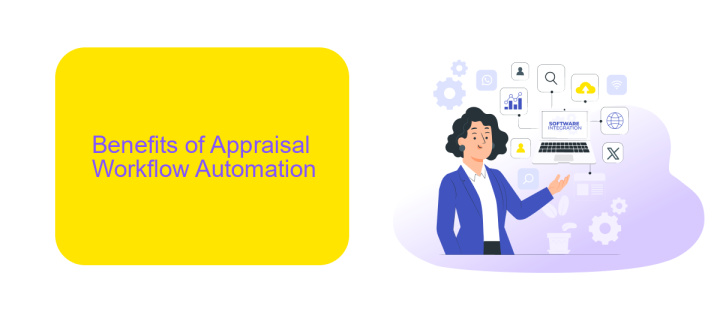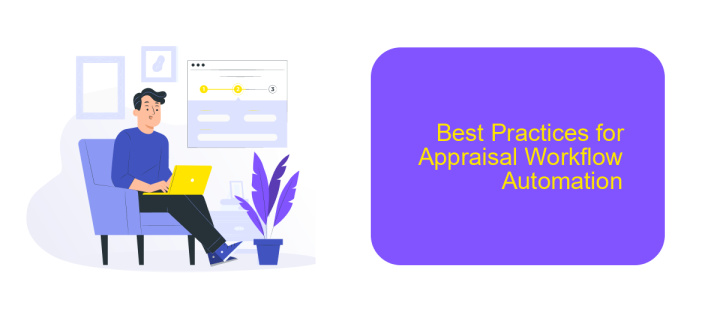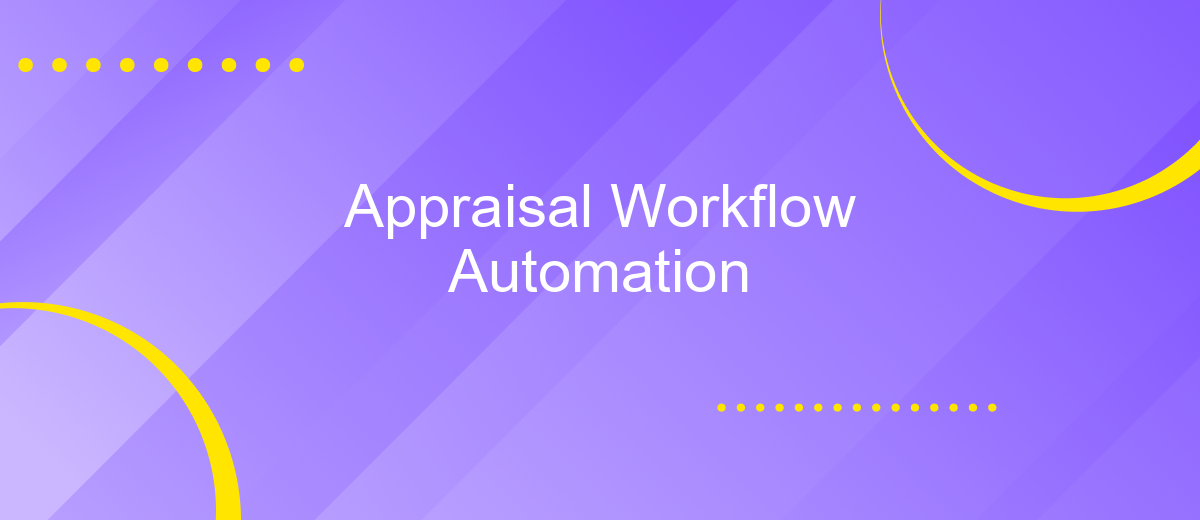Appraisal Workflow Automation
In the fast-paced world of real estate and finance, efficient appraisal processes are crucial. Appraisal workflow automation leverages technology to streamline and enhance these processes, reducing manual effort, minimizing errors, and accelerating turnaround times. This article explores the benefits, key features, and implementation strategies of appraisal workflow automation, offering insights into how businesses can achieve greater accuracy and productivity.
Introduction
In today's fast-paced business environment, the automation of appraisal workflows has become essential for enhancing efficiency and accuracy. Traditional methods of performance evaluations are often time-consuming and prone to human error, which can lead to inconsistent results. By leveraging advanced technologies, organizations can streamline their appraisal processes, ensuring timely and objective assessments.
- Reduction in administrative workload
- Improved accuracy and consistency
- Enhanced employee satisfaction
- Real-time data analysis and reporting
One of the key components of successful appraisal workflow automation is the integration of various tools and services. Platforms like ApiX-Drive facilitate seamless integration between different software systems, allowing data to flow effortlessly and ensuring that all relevant information is available for evaluations. This not only saves time but also enhances the overall reliability of the appraisal process.
Benefits of Appraisal Workflow Automation

Appraisal workflow automation offers numerous advantages, significantly enhancing efficiency and accuracy in the evaluation process. By automating repetitive tasks, organizations can save valuable time and resources, allowing employees to focus on more strategic activities. This leads to quicker decision-making and a more streamlined appraisal process, ensuring that evaluations are completed in a timely manner. Additionally, automation reduces the risk of human error, providing more consistent and reliable results.
Another key benefit is the seamless integration with other systems and tools. Services like ApiX-Drive facilitate the connection between appraisal software and various applications, enabling smooth data transfer and synchronization. This integration ensures that all relevant information is up-to-date and easily accessible, further enhancing the overall efficiency of the appraisal process. Moreover, automated workflows provide valuable insights through data analytics, helping organizations to identify trends and make informed decisions for continuous improvement.
Key Considerations for Implementing Appraisal Workflow Automation

Implementing appraisal workflow automation requires careful planning and consideration to ensure a smooth transition and effective operation. Below are key factors to keep in mind:
- Integration Capabilities: Ensure that the automation tool can seamlessly integrate with existing systems. Services like ApiX-Drive can facilitate these integrations, making the process more efficient.
- User Training: Proper training for all users is essential to maximize the benefits of automation. This includes understanding how to use the new system and how to troubleshoot common issues.
- Data Security: Protecting sensitive appraisal data is paramount. Ensure that the chosen automation solution complies with relevant data protection regulations and has robust security measures in place.
- Scalability: The chosen solution should be scalable to accommodate future growth. This includes the ability to handle increased data volume and additional users.
- Customization: The automation tool should offer customization options to fit the specific needs of your organization. This may include custom workflows, reporting, and notifications.
By considering these factors, organizations can effectively implement appraisal workflow automation, leading to improved efficiency, accuracy, and employee satisfaction. Proper planning and the right tools, like ApiX-Drive for integrations, can significantly enhance the overall process.
Best Practices for Appraisal Workflow Automation

Implementing appraisal workflow automation requires a strategic approach to ensure efficiency and accuracy. Begin by clearly defining the objectives and scope of your automation project. This helps in setting realistic expectations and measuring success.
Next, choose the right tools and technologies that align with your organization's needs. For instance, ApiX-Drive can be an excellent choice for integrating various systems and automating data transfer, reducing manual input and errors.
- Map out your current appraisal workflow to identify bottlenecks and areas for improvement.
- Ensure data accuracy by integrating reliable data sources and automating data validation processes.
- Utilize user-friendly interfaces to make the system accessible to all stakeholders.
- Regularly update and maintain the automation system to adapt to changing requirements.
Finally, provide training and support to your team to ensure smooth adoption of the automated system. Regularly review and refine the workflow to continuously improve efficiency and effectiveness.


Future Trends in Appraisal Workflow Automation
The future of appraisal workflow automation is poised to be significantly influenced by advancements in artificial intelligence and machine learning. These technologies will enable more accurate and efficient data analysis, reducing human error and bias in appraisals. Predictive analytics will also play a crucial role, allowing organizations to foresee potential issues and trends, thereby making more informed decisions. Furthermore, AI-driven chatbots and virtual assistants are expected to streamline communication and enhance user experience by providing instant support and guidance throughout the appraisal process.
Integration with various software systems and tools will become increasingly important for seamless workflow automation. Services like ApiX-Drive will be essential in enabling these integrations, allowing different platforms to communicate and share data effortlessly. This will lead to a more cohesive and efficient appraisal system, where data from multiple sources can be aggregated and analyzed in real-time. Additionally, the emphasis on data security and compliance will drive innovations in encryption and access control, ensuring that sensitive information is protected throughout the appraisal process.
FAQ
What is Appraisal Workflow Automation?
How can Appraisal Workflow Automation benefit my organization?
What types of tasks can be automated in an appraisal workflow?
How do I integrate Appraisal Workflow Automation with my existing HR systems?
Is it difficult to set up Appraisal Workflow Automation?
Routine tasks take a lot of time from employees? Do they burn out, do not have enough working day for the main duties and important things? Do you understand that the only way out of this situation in modern realities is automation? Try Apix-Drive for free and make sure that the online connector in 5 minutes of setting up integration will remove a significant part of the routine from your life and free up time for you and your employees.

